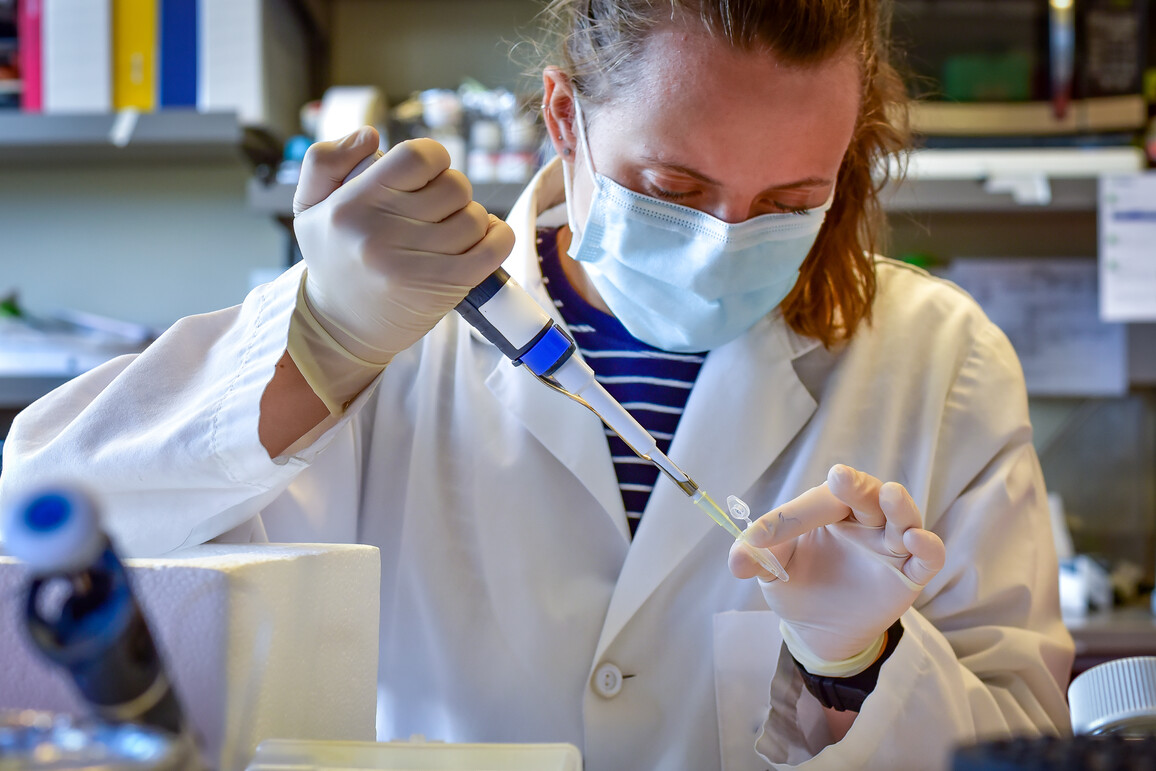Clarification of strategic questions for macrophage cell therapy : Date:
Dresden University of Technology - Prof Dr Michael Sieweke
conceptual period
Recipient: Dresden University of Technology
Funding: GO-Bio initial conceptual phase 2nd round (01/10/2021 to 31/03/2022, EUR 110,411.12)
The aim of the macrophage project is to create the necessary conditions for the use of human macrophages in cell therapy. The research group has already developed a novel process that allows them to experimentally propagate macrophages from induced pluripotent stem cells for the first time. This is an important prerequisite for utilising the great potential of these cells as a therapeutic agent.
Possibilities for utilisation will then be examined using three relevant example applications with different market sizes: the treatment of the rare disease alveolar proteinosis, the treatment of severe liver cirrhosis and the use of CAR macrophages in tumour therapy. For therapeutic use of the experimentally developed cells, adjustments are required to make them suitable for authorisation as cell therapeutics.
In addition, market analyses are carried out and the patent situation and requirements for the approval of macrophages are examined. To this end, the team develops suitable analytical test procedures and examines them together with external partners such as the Paul Ehrlich Institute. By analysing the various commercialization options, different implementation requirements for individual relevant product parameters can be identified. The research project thus contributes to sharpening life science utilisation ideas and verifying their viability in line with the announcement.
feasibility stage
Recipient: Dresden University of Technology
Funding: GO-Bio initial feasibility phase 2 (01/10/2022 to 30/09/2024, EUR 1,190,593.20)
Although cell therapeutics present a promising option against tumour diseases, there is a current lack of effective and sustainable therapeutic approaches. In addition, it is not yet possible to multiply specialised immune cells, so-called macrophages, in large quantities for therapeutic approaches. Current methods can only produce limited numbers.
The Macrophage-2 project aims to develop human macrophages as a clinical-grade cell therapeutic product for tumour therapy. Using humanised animal models the project aims to demonstrate the efficacy of the cell product, i.e. that genetically modified macrophages can effectively and sustainably combat solid tumours through their anti-tumour activity.
To ensure that macrophages are available in relevant quantities for clinical application, gene-modified macrophages are produced from human induced pluripotent stem cells (iPS cells) in a quality-tested manufacturing process. By introducing genetic modifications into the iPS cells, these newly developed cell product relies on the ability of the macrophages to proliferate. The novel cell product therefore has great potential for the broad medical use of macrophages in cell therapy. Based on this project, it would be possible to conduct the first clinical trials in humans and ideally develop a new treatment option for advanced cancer.
